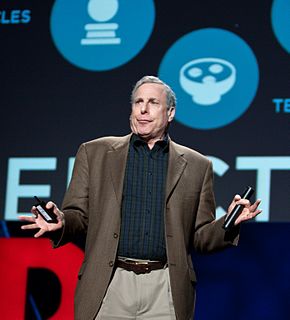A Quote by Neil deGrasse Tyson
If an artist is reaching for the universe as a source of creative muse, then I'm there. I'm gonna say, "Yeah. Here's Saturn. Here's a black hole. Here's twisted space-time. Talk to me. What do you need? What do you want?" And I'll just feed you, because I think only then does science become mainstream - when science becomes a legitimate topic for artists.
Related Quotes
I think I set myself on a course to become a scientist around about the time that Carl Sagan's 'Cosmos' series was on television, and there really was no going back for me at that point, and then I went on to study space science and then get my Ph.D., then go aboard and work in the European Space Agency.
Bohr’s standpoint, that a space-time description is impossible, I reject a limine. Physics does not consist only of atomic research, science does not consist only of physics, and life does not consist only of science. The aim of atomic research is to fit our empirical knowledge concerning it into our other thinking. All of this other thinking, so far as it concerns the outer world, is active in space and time. If it cannot be fitted into space and time, then it fails in its whole aim and one does not know what purpose it really serves.
You could be a poet, an artist, a comedian - if you're in the culture of innovation then you embrace those who do and you're going to protect the science curriculum in the classroom because you understand the meaning and the value of it. And science discoveries don't scare you. You say, "Give me more science", not less. "Give me more technology", not less.
It's so much in me to want to keep experimenting all the time. It's just inherent. Therefore I keep reaching for instruments I don't particularly know how to play, and then I become excited. That gives me energy to want to make new things, and it forces me to hear things in new ways, which then can only help to say things in a new way.
But as Van casually directed the searchlight of backthought into that maze of the past where the mirror-lined narrow paths not only took different turns, but used different levels (as a mule-drawn cart passes under the arch of a viaduct along which a motor skims by), he found himself tackling, in still vague and idle fashion, the science that was to obsess his mature years - problems of space and time, space versus time, time-twisted space, space as time, time as space - and space breaking away from time, in the final tragic triumph of human cogitation: I am because I die.
If all our common-sense notions about the universe were correct, then science would have solved the secrets of the universe thousands of years ago. The purpose of science is to peel back the layer of the appearance of the objects to reveal their underlying nature. In fact, if appearance and essence were the same thing, there would be no need for science.
If you sense a deep human need, then you go back to all the basic science. If there is some missing, then you try to do more basic science and applied science until you get it. So you make the system to fulfill that need, rather than starting the other way around, where you have something and wonder what to do with it.
With Mel [Brooks], only one time and that was later on during "Young Frankenstein" - never with Zero [Mostel] and never with Mel except I was writing every day, and then Mel would come to the house and read what I'd written. And then he'd say, yeah, yeah, yeah, OK, yeah, OK. But we need a villain or we need whatever it was.


































